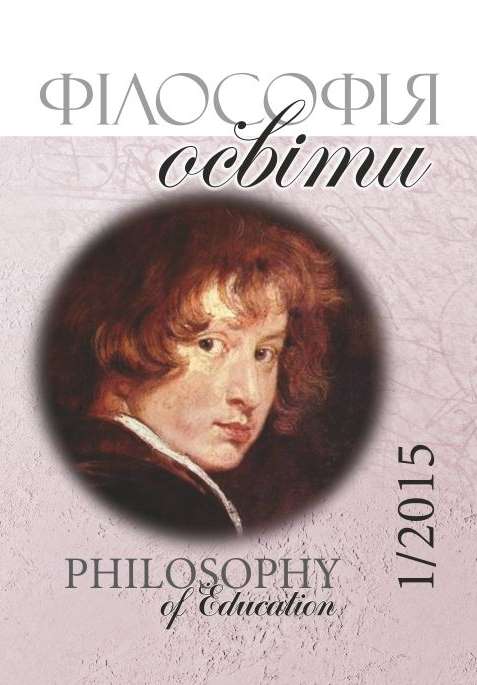"New Humanism" as the Worldview Basis of UNESCO Educational Strategy
Keywords:
globalization, «New Humanism», transculturality, cosmopolitanism, inclusivity, dialogue, hospitality, gender equality, humanistic paradigm of educationAbstract
The globalization process in culture, economics, politics, and constant development of information technology, destruction of binary, hierarchical view of the world require reconsideration of the classical humanistic paradigm. The concept of New Humanism may be considered as one of the possible variants of answer to these contemporary challenges. The article deals with the new understandingof humanism, its potential is analyzed as worldview basis of UNESCO scientific, educational and cultural programs. The author underlines that global changes in all aspects of human make new challenges to education and require a new vision of the educational process basing on the humanistic principles. It is pointed out that transculturality, dialogueness, inclusivity, cosmopolitanism, tolerance to Other, assertion of gender equality, priority of education are the main characteristics of the New Humanism. It is concluded that the primary educational task from the position of a New Humanism is formation of humanistic values such as respect of human life and dignity, equal rights and social justice, recognition of cultural and social diversity, a sense of human solidarity and collective responsibility for our common future. This is that great potential of worldview basis of UNESCO educational strategy.
Downloads
-
PDF (Українська)
Downloads: 385
Published
How to Cite
Issue
Section
License
- Authors who publish with this journal agree to the following terms:
- Authors retain copyright and grant the journal right of first publication;
- Authors are able to enter into separate, additional contractual arrangements for the non-exclusive distribution of the journal's published version of the work (e.g., post it to an institutional repository or publish it in a book), with an acknowledgement of its initial publication in this journal.





